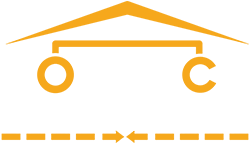
Enhancing Indoor Air Quality in Commercial Buildings
 Maintaining optimal indoor air quality (IAQ) in commercial buildings is crucial for the health, comfort, and productivity of occupants. Poor IAQ can lead to health issues, decreased work performance, and increased absenteeism, which can adversely affect the bottom line of any business. Connect Building Services, based in Sandy, Utah, is dedicated to helping businesses create healthier indoor environments through effective IAQ management solutions.
Maintaining optimal indoor air quality (IAQ) in commercial buildings is crucial for the health, comfort, and productivity of occupants. Poor IAQ can lead to health issues, decreased work performance, and increased absenteeism, which can adversely affect the bottom line of any business. Connect Building Services, based in Sandy, Utah, is dedicated to helping businesses create healthier indoor environments through effective IAQ management solutions.
Understanding Indoor Air Quality
Indoor air quality refers to the condition of the air within and around buildings, particularly as it relates to the health and comfort of building occupants. Various factors influence IAQ, including pollutants from indoor sources, outdoor air contaminants, and the efficiency of ventilation systems.
Common indoor pollutants include volatile organic compounds (VOCs) from building materials and cleaning products, particulate matter from dust and debris, biological contaminants like mold and bacteria, and chemical pollutants from industrial processes. Outdoor pollutants, such as vehicle emissions and industrial discharges, can infiltrate buildings and further degrade indoor air quality.
SCHEDULE A SERVICE
The Importance of Good IAQ
 Maintaining good indoor air quality is essential for several reasons:
Maintaining good indoor air quality is essential for several reasons:
- Health Benefits: Poor IAQ can cause respiratory issues, allergies, and other health problems. Prolonged exposure to pollutants can lead to serious conditions such as asthma, chronic respiratory diseases, and cardiovascular problems. Ensuring clean air reduces these health risks.
- Productivity and Comfort: Studies have shown that employees are more productive and satisfied in environments with good air quality. Poor IAQ can cause discomfort, fatigue, and cognitive issues, leading to decreased performance and higher absenteeism.
- Regulatory Compliance: Various health and safety regulations mandate certain IAQ standards. Compliance with these regulations is not only a legal requirement but also a commitment to the well-being of employees and customers.
- Cost Savings: Effective IAQ management can lead to energy savings by optimizing HVAC system performance and reducing the need for frequent maintenance and repairs.
Key Strategies for Improving IAQ
Regular HVAC maintenance is a primary factor in controlling indoor air quality. Ensuring that HVAC systems are well-maintained involves cleaning and replacing filters, checking for leaks, and ensuring proper ventilation. A well-maintained system can effectively filter out pollutants and provide a steady supply of fresh air. Proper ventilation is crucial for diluting and removing indoor pollutants. Mechanical ventilation systems, such as exhaust fans and air handling units, should be properly designed, installed, and maintained to ensure optimal performance.
Installing air purifiers and filtration systems can significantly reduce indoor pollutants. HEPA filters, activated carbon filters, and UV air purifiers are effective in capturing and neutralizing various contaminants. Moisture control is critical, as excess moisture can lead to mold growth, which negatively impacts IAQ. Identifying and addressing sources of moisture, such as leaks and high humidity, is essential. Dehumidifiers and proper ventilation help maintain appropriate humidity levels.
Reducing or eliminating sources of indoor pollution is a proactive approach to improving IAQ. This includes using low-VOC materials, maintaining cleanliness, and controlling industrial emissions within the building Certain indoor plants can help improve air quality by absorbing pollutants and increasing oxygen levels. However, selecting the right plants and maintaining them properly is crucial to avoid mold growth and other issues. Educating employees about IAQ and involving them in maintaining a healthy environment is essential. Simple practices such as reporting leaks, keeping workspaces clean, and using eco-friendly products contribute to better IAQ.
Case Studies and Success Stories
At Connect Building Services, we have successfully implemented IAQ solutions for various commercial clients across different industries. One notable example involves an office building in Salt Lake City, where we upgraded the HVAC system and installed HEPA filters and UVGI systems. This resulted in a 40% reduction in absenteeism and a 25% increase in productivity over a six-month period.
In another case, a manufacturing facility in Sandy achieved compliance with stringent regulatory standards and improved worker safety and satisfaction through a comprehensive IAQ management plan. This plan included source control and advanced ventilation systems.
In a healthcare facility in Ogden, our team installed state-of-the-art air purification systems, including UVGI and HEPA filtration. This significantly reduced the incidence of hospital-acquired infections and improved patient outcomes.
Advanced Indoor Air Quality Solutions
For businesses looking to invest in advanced IAQ solutions, Connect Building Services offers a range of innovative technologies and services:
- Building Automation Systems (BAS): BAS integrates various building systems, including HVAC, lighting, and security, to improve energy efficiency and IAQ. These systems allow for real-time monitoring and control, ensuring optimal indoor environments.
- Demand-Controlled Ventilation (DCV): DCV systems adjust ventilation rates based on occupancy and indoor air quality levels. This approach ensures adequate ventilation while reducing energy consumption.
- High-Efficiency Particulate Air (HEPA) Filtration: HEPA filters capture 99.97% of particles as small as 0.3 microns, including dust, pollen, and bacteria. These filters are particularly beneficial in environments with high levels of airborne contaminants.
- UV Germicidal Irradiation (UVGI): UVGI systems use ultraviolet light to destroy airborne microorganisms, including bacteria, viruses, and mold spores. These systems are effective in preventing the spread of infectious diseases and improving overall IAQ.
- Energy Recovery Ventilators (ERVs): ERVs recover energy from exhaust air and use it to condition incoming fresh air. This process enhances ventilation efficiency and helps maintain comfortable indoor temperatures and humidity levels.
SCHEDULE A SERVICE
Partnering with Connect Building Services
Improving indoor air quality in commercial buildings requires a combination of expertise, technology, and commitment. Connect Building Services is dedicated to providing customized IAQ solutions that meet the unique needs of each client. Our team of experienced professionals works closely with businesses to develop and implement effective IAQ strategies, ensuring a healthier, more productive environment for all occupants.
Partnering with Connect Building Services offers several benefits. Our expert consultation includes thorough assessments to identify potential issues and recommend tailored solutions. We utilize the latest technologies and equipment to ensure the highest standards of air quality. Additionally, our commitment to ongoing support means we provide maintenance, monitoring, and support to ensure long-term IAQ improvement.
We also assist businesses in achieving and maintaining compliance with relevant health and safety regulations, including obtaining necessary certifications and documentation. Our indoor air quality (IAQ) solutions are designed to be energy-efficient and environmentally friendly, supporting your sustainability goals.
Commercial Air Quality FAQ's
-
Why is indoor air quality important for commercial buildings in Utah?
Indoor air quality is crucial for health and productivity. Poor IAQ can lead to respiratory issues, allergies, and decreased employee performance. In Utah, where outdoor air quality can fluctuate, maintaining good IAQ indoors is essential.
-
What steps can I take to improve indoor air quality in my commercial building?
To improve IAQ, ensure regular HVAC maintenance, use high-quality air filters, install air purifiers, manage humidity levels, and ensure proper ventilation. Additionally, avoid using products that emit volatile organic compounds (VOCs).
-
Are there specific indoor air quality regulations for commercial buildings in Utah?
Yes, Utah follows national IAQ standards set by organizations like OSHA and ASHRAE. Compliance with these standards ensures a safe and healthy indoor environment for occupants, and regular monitoring and maintenance help meet these requirements.

